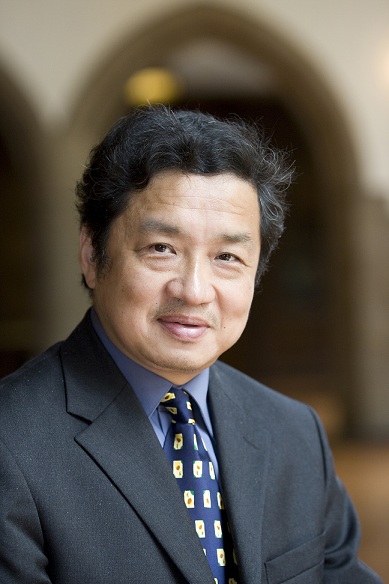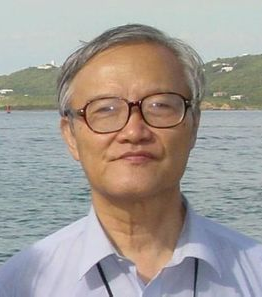
July 31th - August 3rd, 2018, New York, USA.


Prof. Witold Pedrycz Canada Research Chair, IEEE Fellow, Professional Engineer, Department of Electrical and Computer Engineering, University of Alberta |
Bio: Witold Pedrycz (IEEE Fellow, 1998) is Professor and Canada Research Chair (CRC) in Computational Intelligence in the Department of Electrical and Computer Engineering, University of Alberta, Edmonton, Canada. He is also with the Systems Research Institute of the Polish Academy of Sciences, Warsaw, Poland. In 2009 Dr. Pedrycz was elected a foreign member of the Polish Academy of Sciences. In 2012 he was elected a Fellow of the Royal Society of Canada. Witold Pedrycz has been a member of numerous program committees of IEEE conferences in the area of fuzzy sets and neurocomputing. In 2007 he received a prestigious Norbert Wiener award from the IEEE Systems, Man, and Cybernetics Society. He is a recipient of the IEEE Canada Computer Engineering Medal, a Cajastur Prize for Soft Computing from the European Centre for Soft Computing, a Killam Prize, and a Fuzzy Pioneer Award from the IEEE Computational Intelligence Society.
|

Prof. Sun-Yuan Kung IEEE Fellow, Princeton University, USA |
Bio: S.Y. Kung, Life Fellow of IEEE, is a Professor at Department of Electrical Engineering in Princeton University. His research areas include machine learning, data mining, systematic design of (deep-learning) neural networks, statistical estimation, VLSI array processors, signal and multimedia information processing, and most recently compressive privacy. He was a founding member of several Technical Committees (TC) of the IEEE Signal Processing Society. He was elected to Fellow in 1988 and served as a Member of the Board of Governors of the IEEE Signal Processing Society (1989-1991). He was a recipient of IEEE Signal Processing Society's Technical Achievement Award for the contributions on "parallel processing and neural network algorithms for signal processing" (1992); a Distinguished Lecturer of IEEE Signal Processing Society (1994); a recipient of IEEE Signal Processing Society's Best Paper Award for his publication on principal component neural networks (1996); and a recipient of the IEEE Third Millennium Medal (2000). Since 1990, he has been the Editor-In-Chief of the Journal of VLSI Signal Processing Systems. He served as the first Associate Editor in VLSI Area (1984) and the first Associate Editor in Neural Network (1991) for the IEEE Transactions on Signal Processing. He has authored and co-authored more than 500 technical publications and numerous textbooks including ``VLSI Array Processors'', Prentice-Hall (1988); ``Digital Neural Networks'', Prentice-Hall (1993) ; ``Principal Component Neural Networks'', John-Wiley (1996); ``Biometric Authentication: A Machine Learning Approach'', Prentice-Hall (2004); and ``Kernel Methods and Machine Learning”, Cambridge University Press (2014).
|

Prof. Bhavani Thuraisingham Louis A. Beecherl, Jr. I, Distinguished Professor, Department of Computer Science Executive Director of the Cyber Security Research Institute Erik Jonsson School of Engineering and Computer Science The University of Texas at Dallas, USA. |
Bio: Dr. Bhavani Thuraisingham is the Louis A. Beecherl, Jr. Distinguished Professor of Computer Science and the Executive Director of the Cyber Security Research and Education Institute (CSI) at The University of Texas at Dallas. She is an elected Fellow of IEEE, the AAAS, the British Computer Society, and the SPDS (Society for Design and Process Science). She received several prestigious award including IEEE Computer Society's 1997 Technical Achievement Award for “outstanding and innovative contributions to secure data management”, the 2010 ACM SIGSAC (Association for Computing Machinery, Special Interest Group on Security, Audit and Control) Outstanding Contributions Award for “seminal research contributions and leadership in data and applications security for over 25 years” and the SDPS Transformative Achievement Gold Medal for her contributions to interdisciplinary research. She has unique experience working in the commercial industry (Honeywell), federal research laboratory (MITRE), US government (NSF) and academia and her 35 year career includes research and development, technology transfer, product development, program management, and consulting for the federal government. Her work has resulted in 100+ journal articles, 200+ conference papers, 100+ keynote and featured addresses, eight US patents (three pending) and fifteen books (two pending). She received the prestigious earned higher doctorate degree (DEng) from the University of Bristol England in 2011 for her published work in secure data management since her PhD. She has been a strong advocate for women in computing and has delivered featured addresses at events organized by the CRA-W (Computing Research Association) and SWE (Society for Women Engineers).
|

Prof. Jie Wu IEEE Fellow, Director of International Affairs, College of Science and Technology, Director of Center for Networked Computing (CNC), Laura H. Carnell Professor, Department of Computer and Information Sciences, Temple University |
Bio: Jie Wu is a Chinese computer scientist. He is the Associate Vice Provost for International Affairs and Director for Center for Networked Computing at Temple University. He also serves as the Laura H. Carnell professor in the Department of Computer and Information Sciences. He served as Program Director of Networking Technology and Systems (NeTS) at the National Science Foundation from 2006 to 2008.
Jie Wu is noted for his research in routing for wired and wireless networks. His main technical contributions include fault-tolerant routing in hypercube-based multiprocessors, local construction of connected dominating set and its applications in mobile ad hoc networks, and efficient routing in delay tolerant networks, including social contact networks.
|

Prof. Xiaodong Wang IEEE Fellow, Columbia University, USA |
Bio: Professor Xiaodong Wang was an assistant professor from July 1998 to December 2001 at the Department of Electrical Engineering at Texas A&M University. In January 2002, he joined the Department of Electrical Engineering at Columbia University as an assistant professor. Dr. Wang's research interests fall in the general areas of computing, signal processing, and communications. He has worked and published extensively in the areas of wireless communications, statistical signal processing, parallel and distributed computing, nanoelectronics, and quantum computing. Dr. Wang has received the 1999 NSF CAREER Award. He has also received the 2001 IEEE Communications Society and Information Theory Society Joint Paper Award.
|

Prof. Ruqian Lu 中国科学院院士 Academy of Mathematics and Systems Science, Chinese Academy of Sciences, China. |
Bio: Ruqian Lu is a professor of computer science of the Institute of Mathematics, Academy of Mathematics and Systems Science, at the same time an adjunct professor of Institute of Computing Technology, Chinese Academy of Sciences and Peking University. He is also a fellow of Chinese Academy of Sciences. His research interests include artificial intelligence, knowledge engineering, knowledge based software engineering, formal semantics of programming languages and quantum information processing. He has published more than 180 papers and 10 books. He has won two first class awards from the Chinese Academy of Sciences and a National second class prize from the Ministry of Science and Technology. He has also won the 2003 Hua Loo-keng Mathematics Prize from the Chinese Mathematics Society and the 2014 lifetime achievements award from the China’s Computer Federation.
|